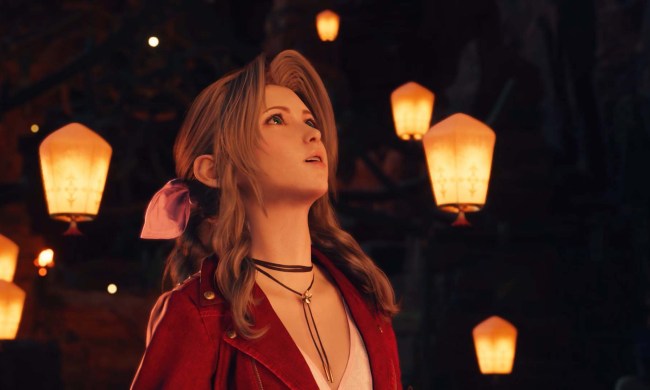
When Final Fantasy VII Remake launched in 2020, tensions were high.
Fans of the original Final Fantasy VII, both a genre- and childhood-defining RPG, were already skeptical about the project due to the fact that it would only adapt a very short slice of the 1997 release. Those frustrations would get compounded by some much more serious ones: Remake would launch weeks into the social isolation era of COVID-19. Despite getting a warm critical reception, the unusual remake would quickly become a polarizing game among fans. Even Digital Trends was critical of it at the time: “Although the complete Final Fantasy VII storyline is a fascinating, emotional globe-trotting adventure, this first 40-hour romp is anything but.”
It was an understandable reaction, but hindsight is 20/20. The further we move away from the tense context that defined its launch, the easier it is to see Final Fantasy VII Remake for what it actually is. With fans currently buzzing about its upcoming sequel, the seemingly more faithful Final Fantasy VII Rebirth, it’s time to give Remake the critical reassessment it deserves. Set aside the nostalgia goggles and you’ll find one of the most subversive big-budget video games ever made.
Bound by fate
When Final Fantasy VII Remake begins, it seems like a perfectly faithful modernization of the original RPG. We get a familiar opening sequence where mercenary Cloud Strife engages in some ecoterrorism, blowing up one the evil Shinra’s pollution-causing reactors. Its a much longer sequence than it was in the original, but it’s fairly by the book compared to other retooled sequences.
That’s a bit of a ruse. The adventure goes in a radical direction later on when Cloud and company are haunted by mysterious Whispers that seem to be controlling their fate. As it turns out, these creatures (dubbed “plot ghosts” by critics) are trying to force the gang to stick to the original’s sequence of events. They quite literally stop Cloud from deviating from the script. That bizarre revelation completely changes the focus of Cloud’s Midgar adventure, putting him in a battle against the literal concept of destiny.
If you never got around to playing it, you can probably understand why people felt a little miffed.

No, Final Fantasy VII Remake isn’t a 1:1 recreation of its iconic counterpart — but that’s what makes it special. The word “Remake” in the title is a bit of a red herring. It’s not that the game is a remake of Final Fantasy VII; it’s about remaking Final Fantasy VII.
The bold project makes more sense when you view it through that metatextual lens. Cloud and company aren’t just RPG heroes, but stand-ins for the creative team trying to devise such a daunting project. The original Final Fantasy VII is a beloved game that means a lot to its fans and the gaming industry as a whole. A remake would have to contend with strong emotions, making it difficult to deviate from its iconic story. Any writer working on a revisit would be bound by fate, trapped in a predetermined script defended by its own plot ghosts: protective fans.
Rather than trying to skirt around that reality, Remake turns subtext into text. The result is a wildly subversive game about our battle to break free from fate. That’s delivered in classic Final Fantasy fashion, full of absurd escalation and a fight against God, but it’s an incredibly humanistic tale too. We get to see Cloud take control of his own story alongside a development team confidently laying out its own vision for the world of Final Fantasy VII. It’s a life-affirming game, one that posits that we’re masters of our own destiny. And that’s especially hopeful in context of a story about the inevitable destruction of our planet due to climate change.

Even divisive pieces of Remake‘s design function in that artistic context. Its tight, linear levels reinforce that idea by trapping players in claustrophobic corridors with an inevitable exit point. Rebirth, by contrast, will toss players into open-world spaces — a reflection of the party’s newfound freedom. Controversial decisions like that give Remake its power, allowing Square Enix to deliver a surprisingly focused story where every aspect feels thematically grounded.
Though I’ve always felt like Final Fantasy VII Remake got a bad rap at launch, the split reaction to it only reinforces its point. There was immense pressure for Square Enix to deliver on fan expectations. Straying from the original’s path would be a risky move that would undoubtedly ruffle some Chocobo feathers. But you don’t often make great art without bold decisions. Final Fantasy VII Remake wouldn’t be the masterfully self-reflexive game it is without daring to reject cheap nostalgia (if you want to see a company turn your memories into cash, try the microtransaction-filled Final Fantasy VII Ever Crisis).
Remember that when you dive into Final Fantasy VII Rebirth on February 29 or try its new free demo today. It couldn’t exist without the series fighting back against its own plot ghosts.



